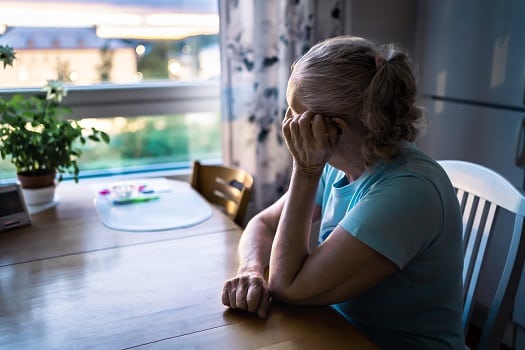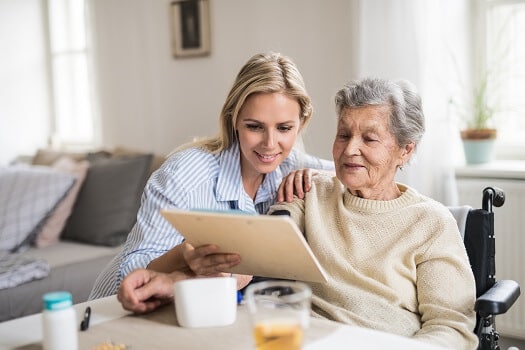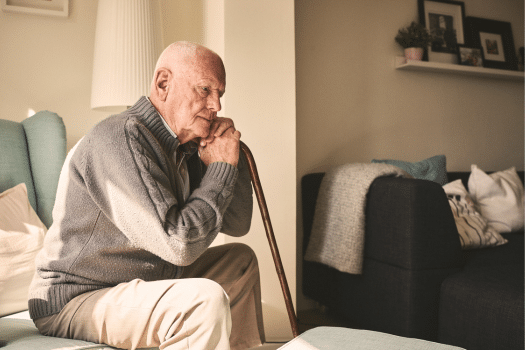Recognizing the Progression: Signs that Dementia Is Escalating
Dementia is a progressive condition that affects cognitive function, including memory, communication, and the ability to perform everyday activities. Dementia symptoms generally worsen over time, but the rate of progression can vary greatly among individuals. Some may experience a gradual deterioration, while others may show a sudden worsening of symptoms. Recognizing the signs that dementia is getting worse is crucial for caregivers and family members to adapt care plans and ensure the safety and comfort of their senior loved ones.
Memory Loss
Memory impairment is often the hallmark of dementia, and its deterioration is a significant indicator of worsening. Forgetting recent events, repeatedly asking the same questions, or having difficulty recalling familiar faces can signify an escalation in the condition.
Aging in place can present a few challenges for seniors living with dementia. However, they can still live independently with the help of professional dementia care at home. Families can rely on Companioa by Institute on Aging (IOA) to provide their elderly loved ones with mental and social stimulation, timely medication reminders, assistance with meal prep, and much more. Our caregivers are available around the clock to help your loved one live a happier and healthier life.
Difficulty with Familiar Tasks
As dementia progresses, individuals may encounter challenges in completing tasks they once performed effortlessly. Simple activities like cooking, dressing, or managing finances can become daunting, reflecting cognitive decline and functional impairment.
Communication Problems
Language difficulties may become more pronounced as dementia advances. This can manifest as problems with finding the right words, forming coherent sentences, or understanding conversations. Communication breakdowns intensify, impacting daily interactions and relationships.
Disorientation & Confusion
Increasing disorientation and confusion mark a worsening stage of dementia. Seniors may lose track of time, forget where they are or how they got there, and have difficulty navigating familiar surroundings. Such disorientation poses safety risks and requires vigilant supervision.
Caring for seniors with dementia can be challenging for family caregivers. Luckily, there is in-home dementia care families can rely on. Professional dementia caregivers help seniors with dementia stay safe and comfortable at home by preventing wandering, providing cognitive stimulation, and assisting with household chores.
Personality & Behavior Changes
Dementia often alters one’s personality and behavior, and exacerbation of these changes indicates progression. Mood swings, agitation, aggression, or withdrawal from social activities may intensify, posing challenges for caregivers and family members.
Decrease in Judgment & Decision-Making
A decrease in judgment and decision-making abilities becomes more apparent as dementia advances. Individuals may exhibit poor judgment in financial matters, neglect personal hygiene, or make risky choices, increasing vulnerability and requiring more support.
Difficulty with Motor Skills
Deteriorating motor skills are another sign of advancing dementia. Tasks requiring coordination, such as buttoning a shirt or using utensils, may become increasingly challenging. Motor impairment affects independence and contributes to the overall decrease in functioning.
Increased Dependency
Progressive dementia leads to heightened dependency on others for daily tasks and decision-making. Seniors may require constant supervision and assistance with activities of daily living, reflecting a decrease in autonomy and self-sufficiency.
Sundowning
Sundowning, characterized by agitation, confusion, or restlessness in the late afternoon or evening, often worsens with advancing dementia. This phenomenon can disrupt sleep patterns, increase behavioral disturbances, and add to caregivers’ burdens.
Worsening of Other Health Conditions
The progression of dementia often exacerbates other health issues, complicating management and care. Medical conditions such as infections, nutritional deficiencies, or mobility issues may arise or worsen, necessitating comprehensive healthcare support.
Hallucinations & Delusions
As dementia reaches an advanced stage, hallucinations and delusions may occur. Seniors may see or hear things that aren’t there or hold false beliefs, further challenging their grasp on reality and requiring specialized intervention.
Decrease in Functional Abilities
A decrease in functional abilities, including mobility, self-care, and continence, signifies advanced dementia. Individuals may require assistance with basic tasks such as eating, toileting, or moving, highlighting the profound impact of the condition on daily life.
Managing the Progression of Dementia
Understanding the progression of dementia is key to providing the right support, which may include:
- Regular assessments – Monitoring changes in behavior and cognitive function
- Adapting care plans – Adjusting care strategies to meet evolving needs
- Professional support – Consulting healthcare providers for guidance and treatment options
Supporting a Loved One with Worsening Dementia
Caring for someone with advancing dementia requires patience, understanding, and flexibility. To support your loved one with worsening symptoms:
- Maintain routine – Keep a consistent schedule to provide a sense of stability.
- Enhance communication – Use simple words, speak slowly, and use nonverbal cues.
- Create a safe environment – Make home modifications to prevent falls and accidents.
Recognizing signs of worsening dementia is essential for timely intervention and appropriate care planning. From memory loss and communication difficulties to personality changes and decreasing functional abilities, these indicators offer valuable insights into the progression of the condition. By staying vigilant and seeking support from healthcare professionals, caregivers can better navigate the challenges associated with advancing dementia and enhance quality of life for their elderly loved ones.
Families looking for top-rated dementia home care providers can reach out to Companioa by IOA. From specialized in-home Alzheimer’s and dementia care to our Adult Day program and Personal Concierge services, there are many ways we can make life easier for seniors and their loved ones. We can be your trusted partner, providing the expertise and attention to detail that will help you navigate the complexities of dementia care. Call one of our Connect Specialists today at (415) 750-4111 to learn more.





